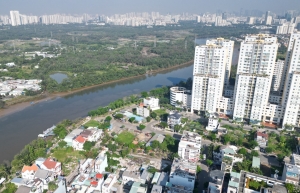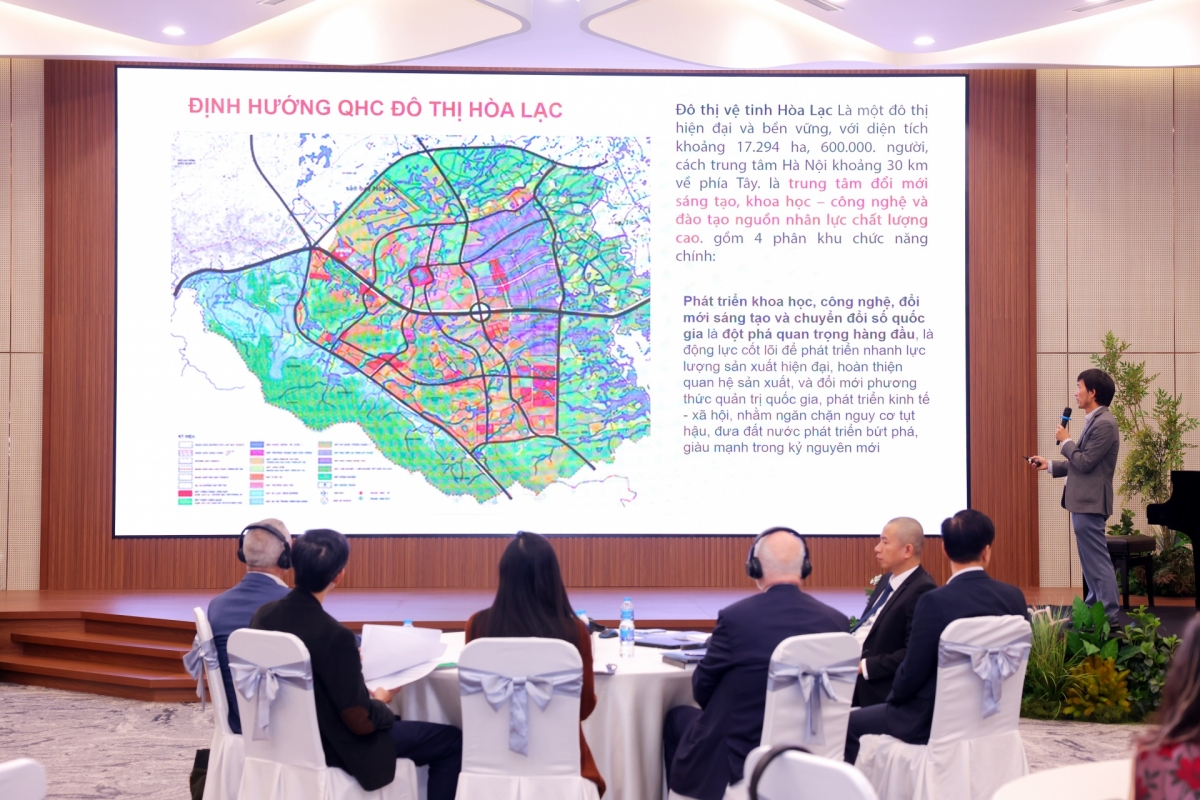INTERNATIONAL INVESTMENT
AND PORTAL
Vietnam's real estate market entered 2025 with broad-based resilience across sectors and regions, underpinned by robust consumer sentiment, solid export performance, and the country's stable political climate.

Alex Crane, managing director, Knight Frank Vietnam
However, the recent tariff announcement by the United States casts a shadow of uncertainty, with potential implications for various segments of the market.
While manufacturing has shown resilience, it is still on the path to full recovery from the pandemic, particularly in labour-intensive sectors like garments and furniture. Tariffs imposed now would not have as severe an impact as they might have during Vietnam’s 2019 peak, but consequences are still expected.
The surge of activity from Chinese manufacturers relocating to Vietnam may taper off, replaced by more measured, demand-driven growth. Continued onshoring by multinational corporations suggests Vietnam’s manufacturing landscape may resemble the market in 2016, when international investment began to expand more broadly, a period marked by healthy, sustainable development.
Office markets in both Ho Chi Minh City and Hanoi have been buoyed by high-value sectors such as technology, research and development, and professional services. These job functions, many of which could be located anywhere globally, have taken root in Vietnam and are unlikely to vanish in the near term, although they remain relatively exposed. Unlike the pre-Covid era, when occupancy was heavily reliant on volatile sectors like finance, insurance, and e-commerce, today’s tenant base is more diverse and structurally resilient.
Retail and hospitality, meanwhile, remain in the early stages of post-Covid recovery. While occupancy has improved, average daily room rates in hospitality and average rental yields in retail remain relatively modest. Local consumer sentiment will be the key driver in the short term, and both sectors may remain under scrutiny until a more definitive recovery trend emerges.
Vietnam’s residential market continues to be sentiment-driven. Real estate is widely viewed as a safer investment than equities, especially among domestic private investors. While the prime segment may feel the initial impact of economic uncertainty, demand for affordable and mid-range housing remains strong amid ongoing supply shortages. This dynamic reflects a foundation of real occupancy needs rather than speculative interest, mirroring market behaviour seen in 2022 and 2023.
Things that we know so far are major transactions, especially those involving large capital outlays, are being paused or undergoing extended due diligence as investors and developers reassess assumptions and underwriting models, and commercial occupiers are expected to defer large capital expenditures in the short term.
Many others remain uncertain. The full scope of supply chain disruption and associated cost pressures, such as logistics and freight, and their cumulative effect on input costs, though Vietnam’s baseline advantage over the US remains unchanged. The depth and duration of the impact on commercial and residential leasing/sales volumes, which will affect project appraisals and underwriting confidence. In addition, the response from the State Bank of Vietnam (SBV), particularly regarding monetary policy.
While a rate cut may not effectively stimulate residential demand (as demonstrated in 2024), targeted lending for key industries and easing of loan-to-value ratios or debt-to-income limits for developers could provide relief.
At present, most segments of the real estate market are in a holding pattern, awaiting clarity from the evolving negotiations between the Vietnamese and US governments. While uncertainty is unsettling, Vietnam’s underlying fundamentals remain sound, and the market’s long-term outlook is still viewed positively.
 Vietnam's real estate market ranked third in region
Vietnam's real estate market ranked third in region
Vietnam's real estate sector is among the top three emerging regional markets in 2025, alongside India and Indonesia, in terms of industrial and investment growth, according to the Horizon Report Outlook 2025 by Knight Frank Asia-Pacific released on February 14.
 Real estate firms embark on recruitment drive as market warms up
Real estate firms embark on recruitment drive as market warms up
Southern real estate firms are in a rush to recruit new staff, particularly brokers, to cope with an influx of new developments that are set to be released onto the market.
 Outlook bright for hospitality and real estate market
Outlook bright for hospitality and real estate market
Following a highly positive year for Vietnam's hospitality market, marked by a strong rebound in tourist arrivals, the sector is now poised for further advancements.
By Alex Crane



















